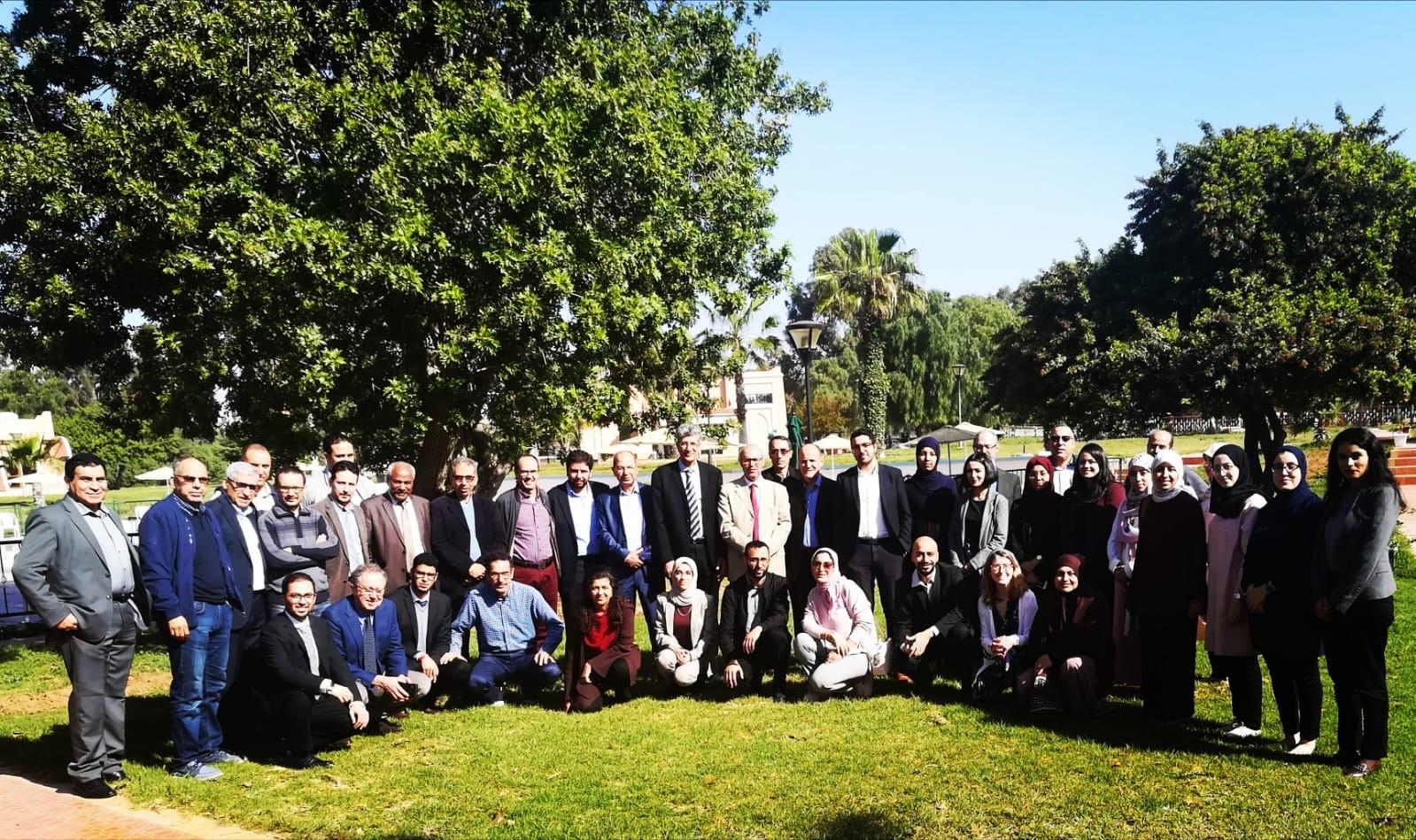Second nexus dialogue: hands-on nexus analysis in Souss Massa, Morocco

Second nexus dialogue participants.
March 2020, The Food and Agriculture Organization of the United Nations (FAO), in collaboration with Stockholm Environment Institute and KTH Royal Institute of Technology, organized and successfully completed the second Nexus Dialogue workshop for 28 participants in Souss Massa in Morocco. This activity falls under the regional project ‘Implementing the 2030 Agenda for water efficiency/productivity and water sustainability in NENA countries’ (WepS-NENA), implemented by FAO with funding from the Swedish International Development Cooperation Agency.
The project has a goal to develop ‘Safe operational boundaries for water use’ defining the conditions for water sustainability. These boundaries are identified using a Water-Food-Energy-Climate Nexus analytical framework that is stakeholder driven with quantitative and qualitative methods. The approach combines methods from the United Nations Economic Commission for Europe (UNECE) and robust decision support. The nexus dialogue was organized with Stockholm Environment Institute (SEI) and KTH Royal Institute of Technology, over a two-year period with three nexus dialogues as milestones and a participatory tool development in between.
The main objective of this second Nexus Dialogue workshop, as part of the nexus process, was to present the preliminary nexus model results that illustrate the tradeoffs and potential synergies in developing policies and infrastructure to increase the overall water-energy-agriculture co-management for resilience. The goal is to inform decisions particularly in the context of various scenarios including climate change that could cause increased vulnerability for the Souss Massa in Morocco. The workshop engaged key actor groups – experts, resource managers, policy-makers, and stakeholders involved in the governance of water, agriculture and energy, with the results around integrated solutions for sustainable planning in Morocco in the face of critical uncertainties identified in the first Nexus Dialogue. The stakeholders also provided ideas about how to improve the models, and give feedback about possible new nexus strategies.
The workshop has succeeded in i) giving participants a preliminary quantitative understanding of tradeoffs and synergies around the water-agriculture-energy-climate change nexus in the Souss Massa; ii) giving participants a hands-on experience exploring the nexus space and the implications of taking sector-specific strategies versus looking across sectors in planning processes; iii) having stakeholders give feedback on the modeling and data; iv) agreeing on new nexus strategies to reduce the vulnerability of the Souss Massa across sectors; and v) identifying the next steps for the final stages of the project.
These activities are under the regional project “Implementing the 2030 Agenda for water efficiency/productivity and water sustainability in NENA countries” implemented by FAO in collaboration with the respective ministries in every country, and funded by the Swedish International Development Cooperation Agency.
